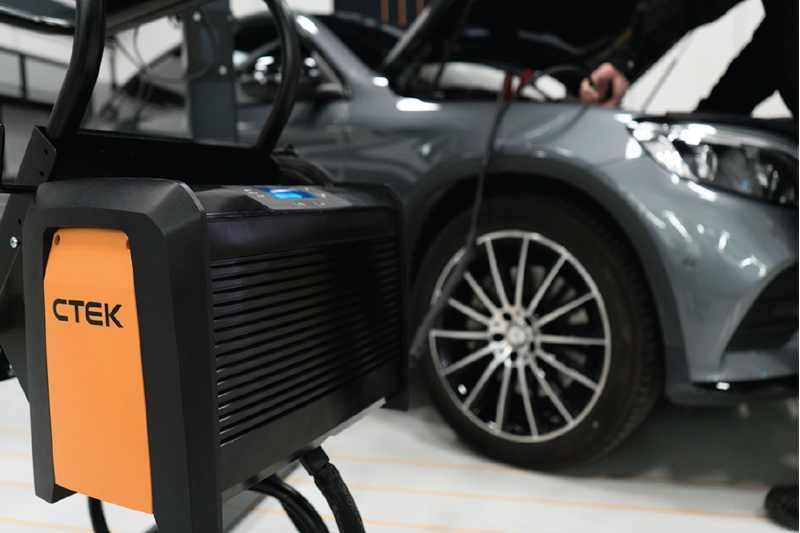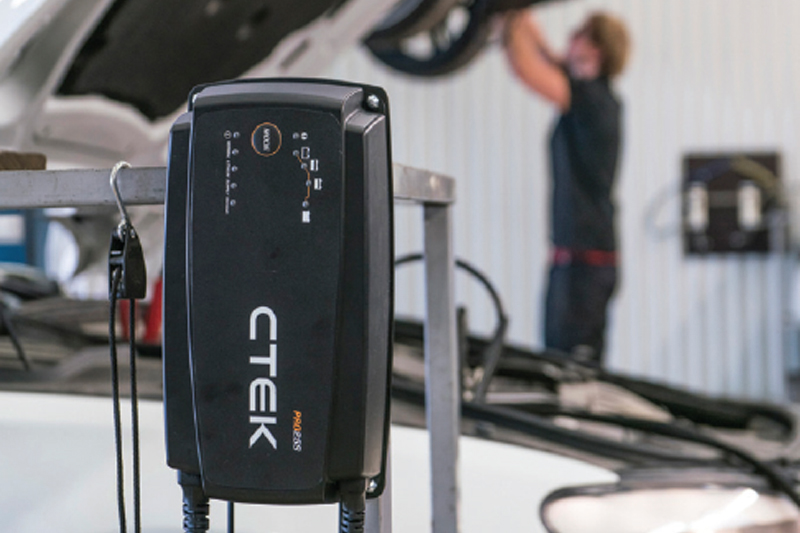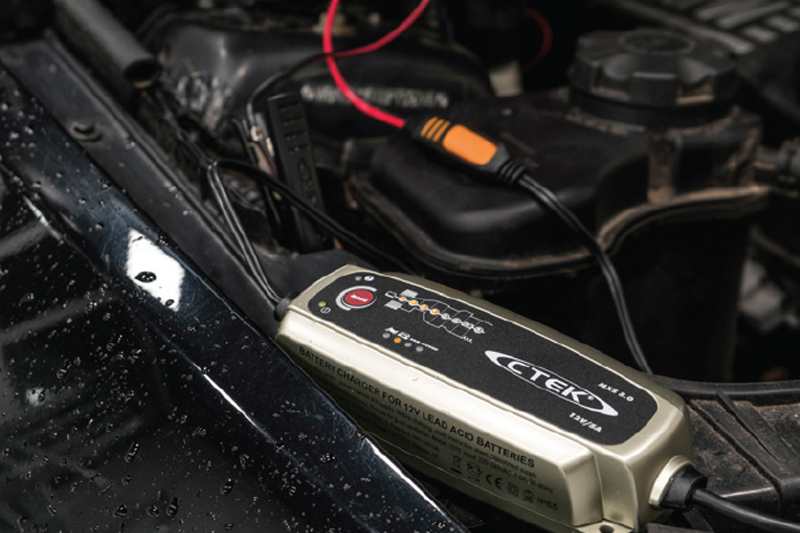
CTEK’s Training Manager Tony Zeal sheds some light on the toll that lockdown restrictions are still taking on car batteries.
With many people continuing to work from home and travelling less despite lockdown restrictions being lifted, there continues to be significant reports of flat car battery cases. This presents factors with the opportunity to help workshops protect against battery failure during service or repair, whilst raising awareness to their customers about the importance of regular battery maintenance to prevent vehicle breakdown and extend battery life by up to three times.

Help workshops be prepared
Pre-lockdown, CTEK research identified that as many as 50% of vehicles entering the workshop had a battery that either needed recharging or replacing. We anticipate this figure is now considerably higher. This is a threat that could cause workshops problems when carrying out work on their customers’ vehicles. So, whether a workshop is repairing a vehicle, testing electrical circuits, carrying out diagnostic procedures, flash programming ECUs, or programming vehicle keys, workshops need to ensure they use battery support.
The PRO120 from CTEK, for example, is an innovative, versatile, and highly efficient 120A battery charger and power supply designed around the needs of the modern workshop. With its variable yet extremely stable output – due to its inherently low voltage ripple, low current ripple, and a range of integrated safety features – the PRO120 is safe for the battery and the vehicle’s delicate electronic systems.

Keeping vehicles on the road
Battery care is simple and can be easily integrated into a driver’s regular routine. To help make sure batteries are always in peak condition so their vehicles are always ready to go, CTEK has developed five key tips for car owners to reflect changes to driving conditions:
- Money saver: Battery failure is often reported as the number one cause for breakdowns, and with a growing amount of sensitive electronic equipment added to today’s modern cars, this issue is on the rise. Utilising battery chargers can help save drivers time, battery costs, towing costs, repair costs, and the environment, through regular battery maintenance.
- Regular charging: A battery should be kept above 12.4V to prevent desulphation, which is the biggest battery killer. It should be charged at least once a month to extend battery life by up to three times.
- Long term storage: If a vehicle is parked next to a power supply, it is worth connecting a smart battery charger to the battery. A smart charger can be attached for months at a time; there is no risk of overcharging or undercharging. The smart charger will keep the battery in peak physical condition, ensuring the vehicle is always ready to go.
- Temperature aware: Battery performance can be reduced by as much as 35% when temperatures hit freezing, and by as much as half when the temperatures go even lower. Conversely, heat is also a common killer of car batteries. Motorists should be extra cautious in extreme temperatures, being sensitive to any vehicle changes, such as the way their car starts, or the operation of the electrical system in general. Any changes can indicate a weak battery or problems in the electrical system.
- Start smart: If the battery is drained, some motorists seek to solve the issue by using jumper leads, push-starting a manual car and going for a drive, or leaving the car idling. However, this won’t fully recharge a car’s battery, and could in fact create long-term damage. The most reliable way to restore the battery is to use a charger or adaptive booster.







